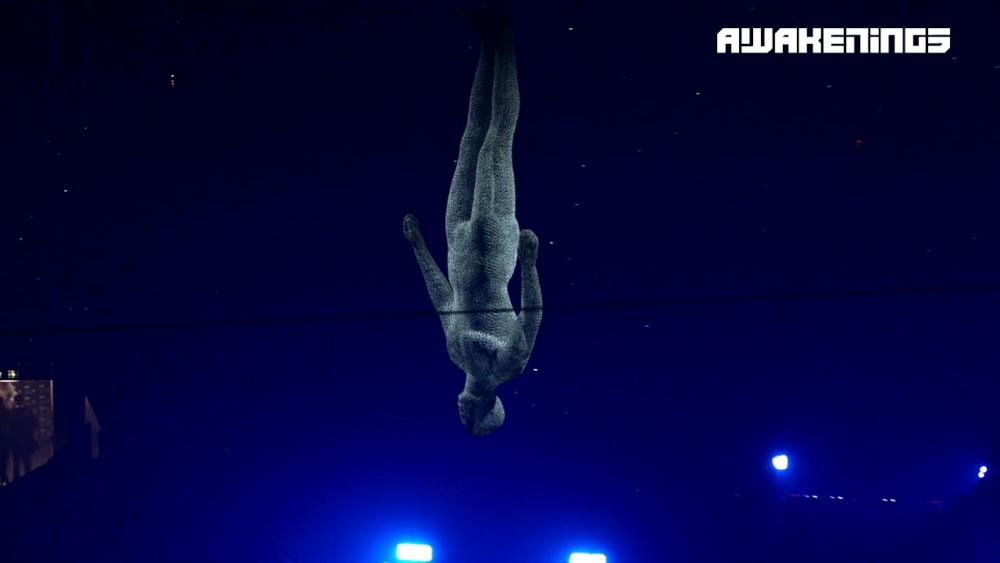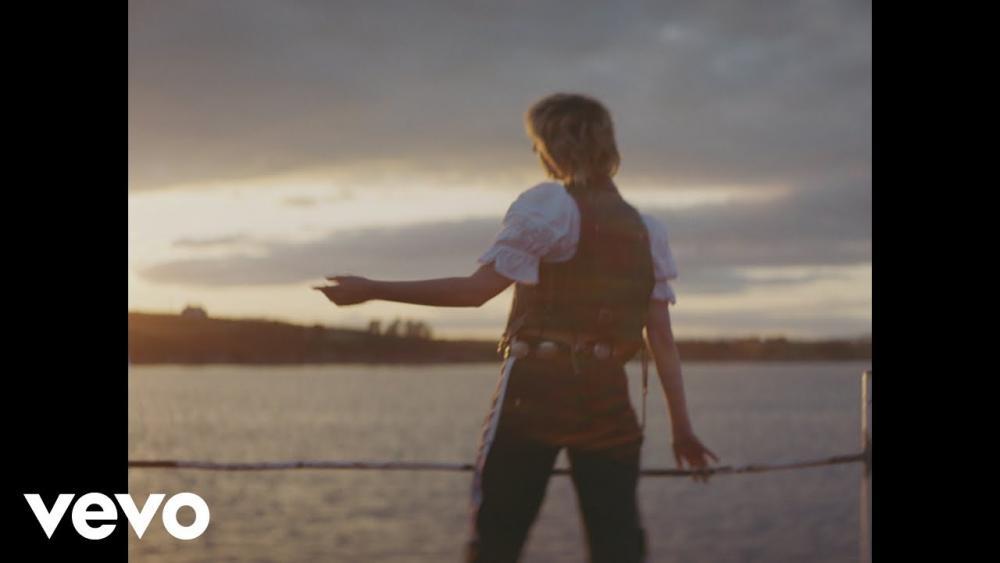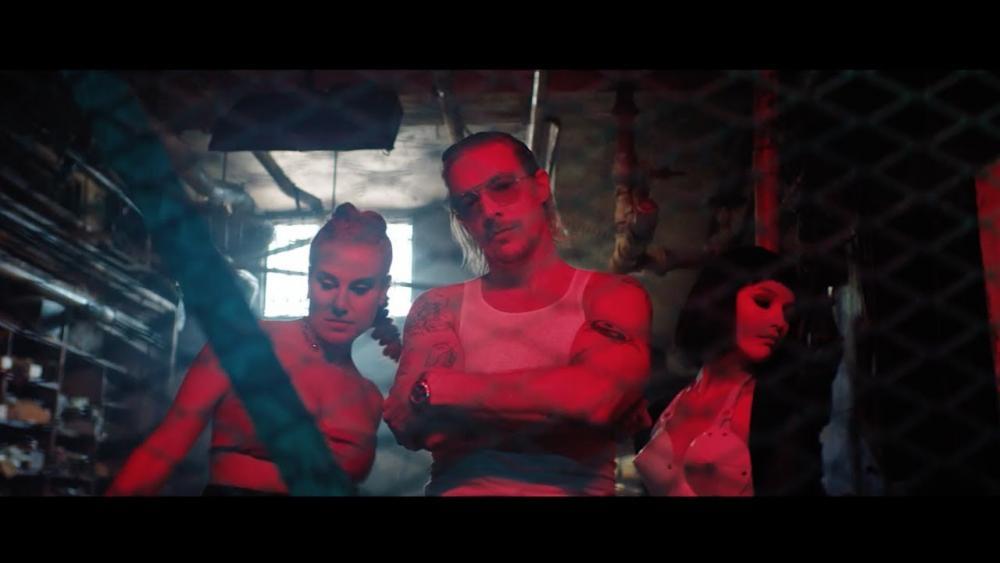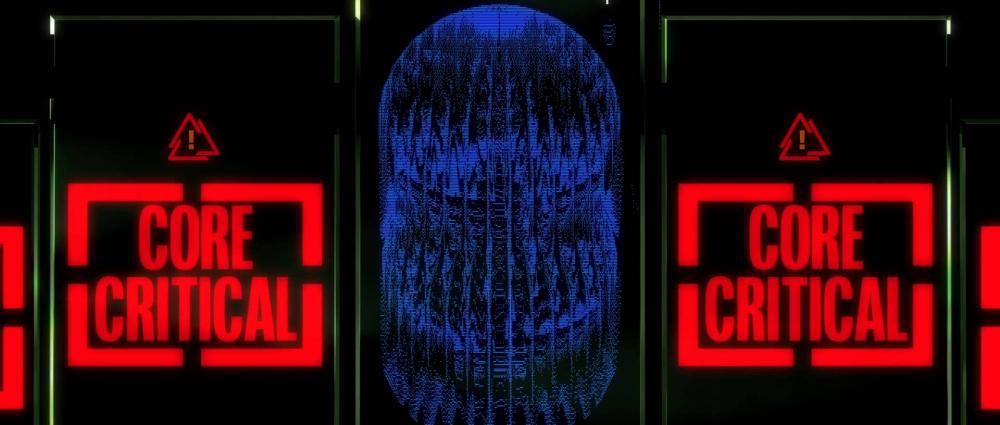by: Dancing Astronaut Staff
Apr 27, 2018
Avicii’s death on April 20 stunned not only the electronic music community, but that of the industry at large. Few — if any — artists could make a claim as to the impact Tim Bergling had in bringing electronic music to the mainstream, and drastically changing the landscape of pop music. The Dancing Astronaut staff came together to discuss his life, his music, the impact he had, and how electronic music will change following his tragic demise far too soon.
This has been especially difficult for us. Not DA, but us… the global dance music community. Maybe it’s because we don’t really have a Kurt Cobain or an Amy Winehouse. No Jimi Hendrix or Jim Morrison. No Prince. Until now. Yes, our industry has suffered young, bright talents being taken too soon, but with this, we’re dealing with the loss of an actual icon whose music is emblematic of dance music’s ascent from the historic underground and to the mainstream. Avicii is the catalyst for that change, and now he’s gone. We didn’t just lose a superstar DJ, we lost an industry trailblazer, the head of a movement. That’s why I think this has been especially difficult, you know? — Dave
I couldn’t agree more, Dave. While we’ve experienced death in entertainment before, our area of music specifically thrives off young people displaying their talent on stage. We haven’t lost anyone quite like Avicii. It’s something that has been particularly painful for all of us, but the way the community came together almost instantly is a testament to just how much he meant to all of us and dance music, and the strength of the culture that exists under all of the glamorous stuff we see on the surface. Avicii’s music is the reason I started becoming interested in electronic music in the first place. Three of his creations in particular drew me in: “My Feelings for You,” “Seek Bromance,” and “Nothing Without Adele,” a mashup of an Avicii original and Adele’s “Rolling in the Deep”, were three of the tracks that brought me into this art form. Avicii’s music was, to me, always the defining dance music of this generation — at least in America. — Eric
Seven or eight years ago, I first heard a song by Tim Bergling. He hadn’t really embraced the Avicii just yet. I think the track was “Seek Bromance” but it may have been “ID” or “ID2” both of which went on to become “Levels” and “Penguin / Fade into Darkness.” It was hard to imagine that the music I was using to study for finals would have such a profound impact on my life. I remember buying tickets to his Governor Island show. The anticipation leading up to it surely would have not been met by any normal concert but I had one of the best afternoons of my life. After that I couldn’t stop. There was something so infectious about his music. Something that needed to be shared. I remember being on the outdoor deck at Neptune’s Beach Club and it actually collapsed because of people jumping in sync to “Levels.” I remember the sheer shock factor at Ultra when Avicii performed with a live band. And now every DJ has a band. I remember many good things because of the melodies that accompany my memories. I remember being proud of him when he retired from touring so he could try to be a normal person. He’s the one DJ that I keep in my favorites list. He’s the one that everyone makes “feel that way.” The friends I have made because of his music. The jobs I have had because of his music. If your death did one thing Tim, it’s made me realize how fucked up the world is to artists. I think Avicii played 300+ shows in 2013. At that rate, you have no time to even work on what got you there in the first place: music. Avicii indirectly led me to pursue a career in music. Something I never would have dreamt of before attending one of his shows. Whenever anyone would ask who my favorite artist was, I would always say Avicii, to which they would laugh. I always joked with my friends that we’d go see Avicii and dance to Levels in 50 years when some of us were using canes.
I never understood why people felt like they knew celebrities. But now, I unfortunately get it. — Jesse
I’ve always associated Avicii’s music with the idea of growing up. “Levels” came out in 2011, back when I was in high school, and Avicii remained a prominent artist into 2013, when I graduated from high school and enrolled in college. Undergrad is an exciting time for further developing your music taste; people turn you on to new genres you haven’t heard/explored before, you share your preferences for others, and help to shape their tastes in turn. No matter how different my peers’ music tastes were, everyone was listening to Avicii. “Levels” was seemingly played on repeat in my dorm building by my various floormates, my university would play “Wake Me Up” after every touchdown our football team scored, you get the idea. And that’s just a brief snapshot of how pervasive Avicii’s music was in this environment alone. I think that most electronic listeners probably have at least one personal growing/life memory that’s attached to an Avicii song, and every time you hear it, you’re back in that moment that gave the song its personal meaning. It’s jarring to know that there won’t be ensuing Avicii releases to grow alongside. — Rachel
I have similar reflections when it comes to Avicii’s music as Rachel. I graduated high school in 2011, right when “Levels” was released. Where I am from, alternative rock and rap were the ‘cool’ genres of music. I found electronic music in 2010, and finally understood everyone’s obsession with music, and being the person to find ‘the cool new artist,’ or the song that was going to be the next hit. Unfortunately, my taste was universally frowned upon by my friends. North Carolina isn’t exactly an electronic music hotbed. As a 17-year old, yes — I cared that everyone sighed when it was my turn to put on a song or made fun of the music that literally consumed my interest/free time. Avicii is the artist that gave me a place in the music ecosystem. He brought electronic music into the mainstream, making it possible for someone like me to see how many other people out there were as passionate about electronic music as I was. — Farrell
It feels like there’s been an uptick in popular music not so much being an innovation from the artist, but rather an amalgamation of proven sounds that click with the public carefully put together by a team working silently in the background. Avicii defied this from start to finish; what I believe made him particularly refreshing was his natural talent, traditionalism, and permanent drive to perfect and reimagine his craft though time. He had a truly innate musical sense and a tireless work ethic — this is why he was able to grasp so much of the public’s attention. I remember when I first heard of Avicii — growing up a trance and electronica person, I wasn’t too familiar with this new big room sound coming out of Sweden. “Levels,” however, completely stole my heart after first listen with its euphoric, memorable hook. Some of my most beloved memories from early college days came from house parties where it was blasted on the regular. He sure knew how to arrange elements well in music to create an emotional impact from his crowds!
The music world at large truly lost an innovator in his death. One of the first thoughts that struck me was that his death is painfully similar to the likes of Amy Winehouse, and other stars succumbing to their demons brought on by the pressures of the industry on a young mind. It reminds us that those who suffer most often make the most beautiful art, and reminds us of the importance of putting personal health first above all else. — Christina
Back to what Avicii meant to me personally and his legacy, for what its worth:
As cliche as it may be, I really do owe Tim a great thanks for getting me here, well, anywhere. I could never say I was the biggest Avicii fan; I was a casual fan at best. But his stature, his contribution to dance music, ultimately has had a profound impact on my life and what my aspirations are. As much as it pains me to admit it, yes, I was one of those frat bros who was drunkenly fist pumping with my boys at an Avicii show right off campus my sophomore year. We were all that guy, or gal. But amidst the enormous parking lot party we were having the day, at some point I realized that I wanted this to be my life. I wasn’t sure how — I knew I’d never be Avicii up there, beaming away at a group of thousands of kids dancing in unison to MY music. Maybe I could be an entourage dude who holds Grey Goose on the side of the stage and looks cool? Or maybe I could put my love for writing to good use and describe how I was actually feeling and maybe other people would connect to that? It wasn’t until some years later, after Swedish House Mafia’s “last” show in Miami that I joined the DA Family and really got to begin actualizing that dream of making dance music my life. DA has brought me hundreds of incredible experiences since: meeting my idols, traveling, festivals, concerts, interviews, and even working with some great artists and companies I only ever thought I’d be a fan of. Maybe its a stretch to attribute everything in the last 5 years to one guy, playing one of his 300+ shows that year in one shitty venue, almost a decade ago now. But one revisiting of “Levels” on the day Tim passed, and it all welled right back up in my head. I felt like I was 19 in that parking lot with every other Greek life kid at my college and I started to cry. The guy who brought me that “good feeling” that really did motivate me to find my purpose is now gone. Thank you Tim. You made this what it is for all of us to enjoy now.
I think Avicii’s legacy is quantified in that way for everyone. I think tons of our favorite DJs nowadays were inspired by Avicii, either at a show in GA, from their bedroom watching the Ultra live stream, listening to his Essential mix, etc. Like Jesse said, every DJ is playing with a band now. Or working with a vocalist that normally lies in some other genre. And maybe that credit isn’t due solely to Avicii, but the inspiration kids have nowadays came from somewhere, and up the line Avicii is undoubtedly a part of it for everyone out there doing it right now. — Dave
I think that it’s probably easiest to think about in terms of what it’s not. It’s not the music right? It’s the pressures of fame, the suffocating sense of expectation that comes with being in the public eye at all times, the unrelenting travel, the lack of sleep, all that comes with mass musical success. When it comes to artists’ schedules, interviews are scheduled, tour dates are scheduled, press appearances are scheduled. Mental health care doesn’t seem to always make it onto the schedules, so to speak, and seems even less likely to the more highly sought after the artist is, given that more popularity means less time, but it’s just as important as (if not more than) any tour date, any appearance. — Rachel
A lot of these new talents are picked up right in their teenage years, which is a huge time for brain development. Pair that with the glamorization of the “rockstar life” that they’re promised, others wanting to make a maximum profit off them and thus pushing them to do as many gigs and release as much music as possible, and mental illness that arises or is further amplified from this stress, and you have a recipe for disaster. It seems most of these artists often feel isolated, and unable to really talk to their team around them because what their team wants isn’t necessarily their best interest. Also, many like Avicii wear their hearts on their sleeves and care deeply about their fan base and giving their all to their work. They don’t want to let anyone down, or disappoint themselves either! I can’t imagine the pressure of not even growing fully into oneself, yet dealing with such a large burden to perform and essentially be a “cog in the machine” that is the corporate/popular music world. — Christina
One of the aspects I think is the most interesting about electronic music in particular is how anti-social its creation is. Until someone is rather successful, most dance music is made in isolation. No longer do musicians need to write music with other people; they can make full productions on their computers, performing every instrumental aspect of a composition without ever touching anything but a mouse. When you combine the fact that the music itself can be written alone, and artists tour with people that may not be on their creative wavelength, it becomes clear why artists may become unhappy or struggle along the way. —Eric
Excellent point, Eric – I think the anti-social nature plays a role too! It magnifies the isolation. —Christina
I think that’s a really significant point for how things work nowadays. “Bedroom producer” is a term for a reason. Artists can blow up before ever playing a show and all of a sudden they’re supposed to go out in front of thousands daily. That sort of mental whiplash can only be, at best, limited. It’s gonna have some effect one way or the other. Also, to reiterate: touring is and always has been brutal on artists. The flexibility offered by DJs only increases their availability and limits their time to reset and recharge, which is hugely taxing. — Coop
The pressures that the music industry puts on artists can be completely unrealistic, but at the end of the day, if an artist can’t handle it — the fans suffer. It seems that artists choose to push through their rigorous tour schedules and pressure to be the manufactured image their labels would like them to be, even if it means sacrificing his/her own well-being. It is the ultimate sacrifice, and one that few artists can cope with long term without turning to things like substances. I think that Avicii’s passing (regardless of the real cause of death), will put pressure on the industry to be held accountable, and to treat their artists like the humans that they are. — Farrell
And I think that Justin Bieber’s cancellation of the final leg of shows on his Purpose: World Tour a few months ago serves as a timely example of the strain that touring imposes on artists. Bieber cited his “well being” as the reason for the cancellation, and many news outlets wrote articles about John Mayer’s tweets to Bieber, in which Mayer commended Bieber for taking the necessary measures to look after his health. I think it’s very interesting that Mayer’s tweets supporting Bieber were deemed newsworthy by many online publications, and my impression is that it speaks to a paradigm shift in terms of how touring and mental health are not only being discussed, but being discussed in the media. Artists are being increasingly open about the hardships of touring and their own individual mental health struggles in relation, whereas artists seemed to keep quiet on the subject not all that long ago. As more artists talk about mental health, awareness will continue to rise as other artists will likely begin to feel more comfortable talking about mental health. This shift has been mounting, and I think that Avicii’s death will be a driving force of this discursive shift. — Rachel
Has there ever been an “ID” like “Levels?” I don’t think so. There’s a lot of credit due to the At Night Management team for the way the whole project was marketed, but Avicii was very similar to people like deadmau5 and Armin: the melodies stick to you like glue. You can’t shake them. Especially early on in his career. Tim’s music wasn’t just mixed and mastered well, it was written well. And he just pumped those tracks out repeatedly! No one worked the piano into commercial electronic music like Avicii did, and I think it was just so friendly to the average person’s ear that it was hard to ignore. — Eric
Avicii had the unique (at the time) ability to take authentically electronic sounds and blend them with pop elements. The mainstream listener expected vocals to be the focal point of a song, and his music found a way to make the electronic chords the focal point without compromising the catchiness of his music. When he came into the true mainstream thanks to “Levels,” he capitalized. He completely shifted his sound, infusing folky-instrumentals with electronic music, thus making his music appeal to an even wider net of fans. His willingness to push the boundaries of his sound, even if it meant losing some of his core initial fanbase, is ultimately what led him to become literally a worldwide sensation. Because some of his biggest hits were electronic to their core, he truly opened a door for the mainstream to take electronic music seriously. — Farrell
My thoughts mirror Eric’s exactly. He had a profound understanding of arrangement, and his knack for fashioning brilliant melodies was proven in all his work.
Maybe his music is a bit too “cheesy” or “lacking in edge,” per the naysayers; but you can’t deny a beautifully-written melody when you hear one. Something about it grabs you. This is why his music was able to resonate with ranks of people outside the traditional dance scene. He showed that with hard work and passion, anyone can evolve from a teenage online persona posting in forums into an international superstar. His willingness to cross genre lines and mash together two vastly different sounds in a way that works inspired others to do the same. Not to mention, the fact that he became such a favored collaborator for so many pop stars serves as further motivation to come somewhat close to what he achieved. His musical blueprint remains embedded in the popular dance sphere to this day, and we also see multitudes following in his footsteps by making electronic music infused with live elements and physical instrumentation — Christina
The music industry has been in flux going on a decade-and-a-half now. The rise of streaming affects not only the bottom line for labels, but also and especially for artists. Touring and personal brands built out on social media have become the best means for artists to make a living. Not only does that mean shows almost literally daily, but it also puts pressure on them to constantly be posting somewhere, to be “on.” I personally believe we’ll see some take a step back from both constant touring and social media, but until the revenue issues that arose from the streaming model are equitably addressed, I’m not so sure that can be an entirely viable strategy for the vast majority. — Coop
In thinking about your comment that the industry has been “in flux,” relevancy immediately comes to mind as a component of the industry that too is always in flux. We know that many DJs don’t give much weight to DJ Mag’s Top 100, and Laidback Luke has been very outspoken about the ranking system. Whether the artists value the Top 100 or not, the list still outlines who is “relevant” and who is accordingly popular in the industry, even if the means of gaining this particular kind of relevancy as an artist are contrived or calculated. The list still influences listeners and has an impact. It’s realistic to say that every DJ has a drive to be relevant, but this drive is of course very damaging for some, and relevancy is sometimes short lived, which is its own kind of pressure. This is just an example of a ranking system and its prominence, but what it really speaks to is the necessity of remaining relevant, and how deeply ingrained that necessity is in this context for success. Constant touring appears to have a lot to do with remaining relevant–it’s how many DJs attract new fans, and how they continually connect with existing ones. “Popular” might even be a better word for it than “relevant,” but regardless, being a “popular” artist will never not be important to stay in this industry, and so I don’t think that there are clear cut changes that can be anticipated with respect to this aspect of the electronic industry in the wake of Avicii’s death. — Rachel
I think it’s really hard to say whether or not the music industry is in for a “reckoning” after Avicii’s death. For one, it hasn’t seemed to change any of its outlook toward mental health and balance in artists’ lives — even after countless have passed on for similar reasons. Secondly, Mike & Rachel’s comments on the mass change and instability currently happening within the industry definitely make the future seem more muddled than ever. Perhaps if all this talk of blockchain technology being used to place money back in creatives’ hands ends up becoming a reality, we will be able to take some (but not all) of the touring burden off artists. Until then, I’m not seeing a “light at the end of the tunnel,” really.
That said, I agree with Rachel’s earlier comments on how some marginal progress has been made in terms of self care becoming a more talked-about subject within the music industry. More and more artists have been stepping up to share their struggles and their tips for dealing with them, which will hopefully encourage others to at least stand up for themselves and take back some control over their lives when it’s most necessary. — Christina
I think he will forever be known as an electronic pioneer who is responsible in large part not just for helping electronic undergo its second commercial explosion, but also in firmly embedding the genre into the fabric of pop culture. His popular hits are going to be like the Queen & Journey songs of the Millennial generation; I wouldn’t be surprised to see my peers happily belting out the lyrics to “Seek Bromance” or “Wake Me Up” when we’re well into our elderly years. — Christina
I think there will be a longevity to Avicii’s memory, and it’ll be due in large part to his role as a major electronic innovator, and to how his fans preserve his memory through listening to his music. Avicii won’t be forgotten, but celebrated for all of the meaningful music that he produced, and for the ways that it touched his listeners’ lives. It’s inevitable that artists will pass away; in this case it happened far too soon, but music is immortal, and so Avicii will live on via his music. I think that we can also expect a biopic about his life to eventually arrive, which will only further extend his legacy. —Rachel
Avicii will be remembered as the genius that left us too early. His music will live on in sets and young fans will learn about the legend that was Tim Bergling. The productions are timeless enough that they won’t feel out of place in live performances, and artists will begin to dig deep and show even rarely-heard cuts to fans at mainstages and progressive tents. If nothing else, Avicii will be remembered for driving electronic music to new heights in the United States, pioneering the happy piano-led tracks to a wide, mainstream audience. “Levels” will forever be the track to which everyone can sing along, even when it doesn’t have words. Tim won’t be forgotten. — Eric
Categories: Features, News























